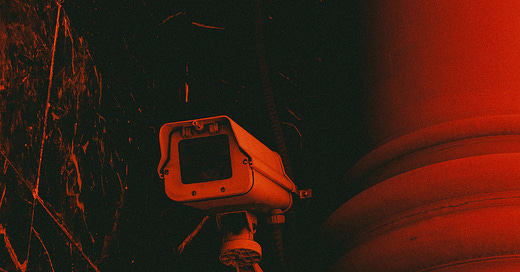Chinese video surveillance cameras in Ciudad Juaréz
A recent investigative report published by Empower notes that In 2022 Ciudad Juárez acquired facial recognition video surveillance equipment from Chinese firms vetoed by the US. In its investigation, Empower also notes that both Chinese companies have operational ties to the province of Xinjiang, in northern China, marked by problems of forced labor and abuses of the Uyghur community.
The US approach
In September 2021, the US prohibited its Federal agencies from buying mass surveillance equipment if a series of Chinese brands produced them, arguing risks to their national security, as they fear that through said technology, the People's Republic of China would carry out espionage over its borders. What they point out is that the manufacturers of such electronic equipment may be compromised by the security agencies of the Asian giant and that it is possible that they remotely access the devices and use them for espionage. This concern led to the fact that, in May 2022, the North American Government spoke out against the intention of the Mexican government to purchase scanners from another Chinese company, Nuctech, to monitor the border.
The approach of Mexico
To do the report, Empower "made 28 requests for information to agencies in states and border cities in northern Mexico, finding that, while the United States restricts the use of these technologies for national security reasons, they are used in Mexico."
The border city of Ciudad Juárez responded that its Municipal Public Security Secretariat acquired Dahua and Hikvisión brand devices in May 2022 through intermediary companies. The devices include 1,000 video surveillance cameras at 250 intelligent monitoring points.
After the closure and publication of the Empower report, Adrián Sánchez, from the Social Communication and Public Relations Coordination of the Ciudad Juárez Secretary of Public Security, sent the following response to Empower's request for comments:
“Indeed, the United States has banned many brands of high technology products, not specifically because they are a risk to their national security, although they are included as such, but the point is that they are banned for the simple fact of being Chinese branded products and not because they do not comply with the guidelines or security requirements, while in this city they are highly functional and were installed with the necessary security measures (firewalls) so that there is no risk, as is done with all systems that the Ministry of Public Security uses.”
This discrepancy in the approaches to the surveillance technology manufactured in China already represents at least a trust inconvenience between the intelligence bodies of both bordering countries.
https://empowerllc.net/2023/06/07/chihuahua-coahuila-videovigilancia/
https://www.reforma.com/desaprueba-eu-escaneres-chinos-comprados-por-mexico/ar2496050
Photo: Parker Coffman



